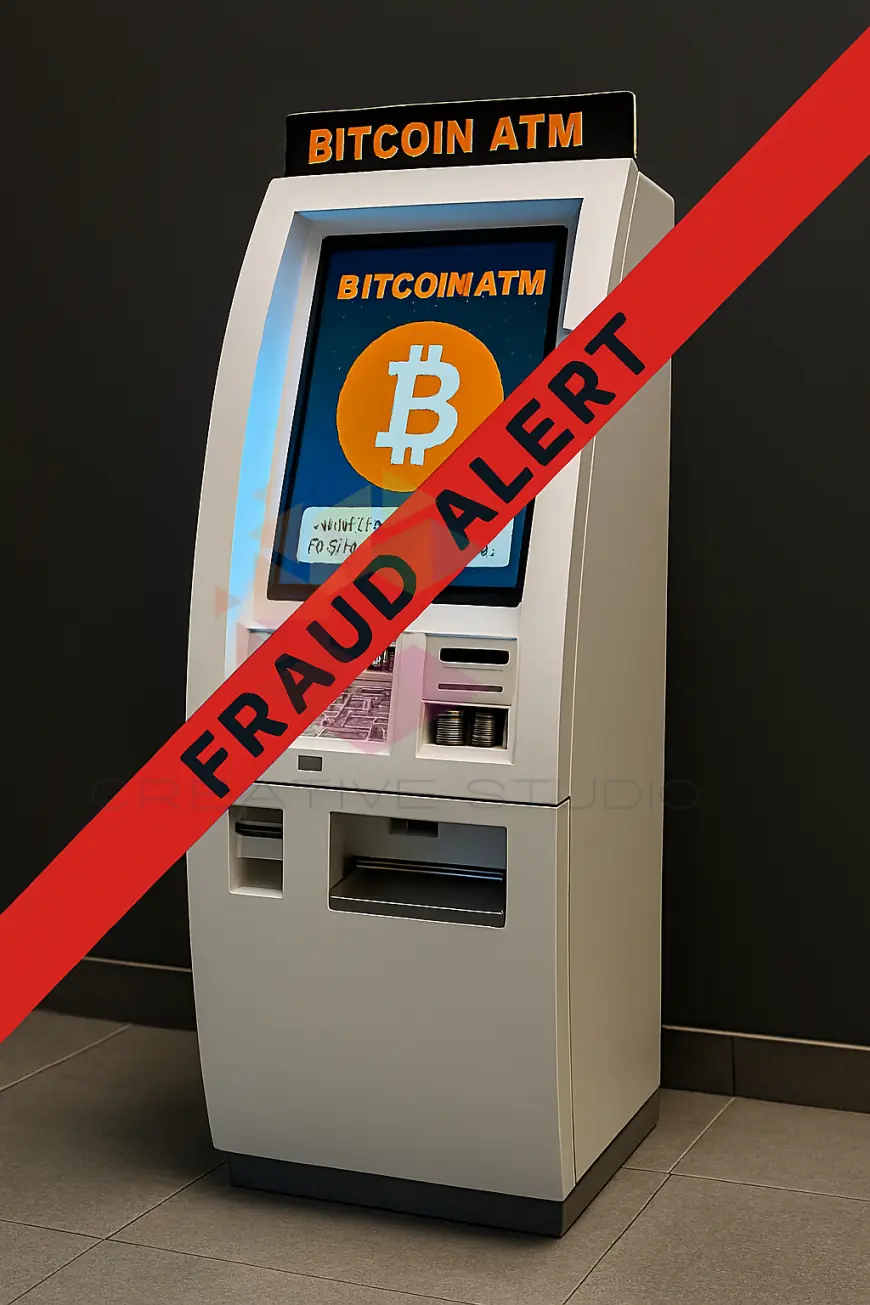The Rise of Bitcoin ATM Scams: Worldwide Fraud Alert
Bitcoin ATM scams: a rising form of cryptocurrency fraud that exploits fear and secrecy, tricking victims into sending cash converted into crypto wallets.

Table of Contents: Bitcoin ATM Scam Alert
Bitcoin ATM scams are a rising form of cryptocurrency fraud in the United States, but their impact is global. Criminals exploit fear, urgency, and secrecy to trick victims into depositing cash into Bitcoin ATMs and sending it to scam-controlled wallets. This article explains how the scam works, real cases in the U.S., global perspectives, law enforcement responses, and practical tips to protect yourself.
Bitcoin ATM scams are a growing form of cryptocurrency fraud in the United States, but their impact is global. This article explains how these scams work, why they are dangerous, and how individuals worldwide can protect themselves.
Understanding the Bitcoin ATM Scam
Scammers trick victims into depositing cash into Bitcoin ATMs, converting it into cryptocurrency, and sending it to scam-controlled wallets. Once transferred, funds are nearly impossible to recover due to the irreversible nature of blockchain transactions.
Common Tactics Used by Scammers
- Fear and urgency: Victims are told they face arrest, lawsuits, or hacked accounts.
- Authority impersonation: Criminals pose as police, banks, or government agencies.
- Isolation: Victims are instructed not to tell anyone, cutting off support.
- Step-by-step coaching: Scammers guide victims through ATM transactions over the phone.
Real Cases in the United States
Americans lost nearly $250 million to Bitcoin ATM scams in 2024. Victims include seniors, veterans, and families who were pressured into sending life savings. Law enforcement has documented cases where individuals lost hundreds of thousands of dollars within hours.
Global Perspective: Not Just a U.S. Problem
While the United States has over 45,000 Bitcoin ATMs, similar scams have been reported in Canada, Europe, and Asia. International fraud networks often target victims across borders, making this a worldwide issue.
Law Enforcement and Regulatory Response
Police departments now post warning signs near Bitcoin ATMs. The FBI and FTC issue alerts, and regulators are exploring stricter rules for ATM operators. In some cases, operators themselves have been charged with laundering millions through their machines.
How to Protect Yourself
- Never pay with cryptocurrency: Legitimate institutions will not demand Bitcoin payments.
- Pause and verify: Confirm with the real institution before acting on urgent requests.
- Ignore secrecy instructions: Scammers often say “don’t tell anyone.”
- Look for warning signs: Many ATMs now display fraud alerts before transactions.
Conclusion: Stay Alert Worldwide
Bitcoin ATM scams exploit fear, urgency, and secrecy. While the United States is heavily affected, global audiences must remain vigilant. Education and awareness are the strongest defenses against this evolving fraud.
Frequently Asked Questions (FAQs)
A Bitcoin ATM scam occurs when criminals trick victims into depositing cash into cryptocurrency ATMs, converting it into Bitcoin, and sending it to scammer-controlled wallets. Once sent, funds are nearly impossible to recover.
Scammers use fear, urgency, and authority impersonation. They pretend to be police, banks, or government agencies, and pressure victims to act immediately, often instructing them step-by-step over the phone.
No. While the United States has over 45,000 Bitcoin ATMs and many reported cases, similar scams have been documented in Canada, Europe, and Asia. International fraud networks often target victims across borders.
In 2024 alone, Americans lost nearly $250 million to Bitcoin ATM scams. Victims include seniors, veterans, and families who were pressured into sending life savings.
Warning signs include urgent demands for payment, instructions to keep the transaction secret, and requests to pay with cryptocurrency. Legitimate institutions will never demand Bitcoin payments.
Recovery is extremely difficult because Bitcoin transactions are irreversible and anonymous. Law enforcement focuses on prevention, education, and prosecuting operators who knowingly enable scams.
Stop the transaction immediately, contact your local police, and report the scam to agencies such as the FTC or FBI. Do not send cryptocurrency to unknown wallets.
Yes. Some operators have been charged with laundering millions through their machines, failing to register with regulators, or colluding with scammers.
Global audiences should remain alert, as scams are not limited to the U.S. Education, awareness, and skepticism of urgent crypto payment requests are the best defenses.
Yes. Many Bitcoin ATMs now display fraud alerts before transactions, warning users that government agencies will never ask for Bitcoin payments.
Reward this post with your reaction or TipDrop:
 Like
0
Like
0
 Dislike
0
Dislike
0
 Love
0
Love
0
 Funny
0
Funny
0
 Angry
0
Angry
0
 Sad
0
Sad
0
 TipDrop
0
TipDrop
0


























